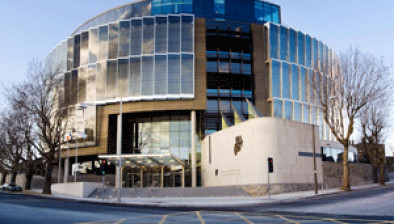Court of Appeal: Alleged child sexual abuser has conviction quashed due to incorrect jury charge on recent complaint evidence

The Court of Appeal has quashed the conviction of an alleged child sexual abuser on the grounds that the trial judge did not correctly charge the jury in respect of the doctrine of recent complaint evidence. The accused’s counsel has not raised a requisition at the time or in the original notice of appeal but was given permission to raise the ground of appeal.

About this case:
- Citation:[2023] IECA 127
- Judgment:
- Court:Court of Appeal
- Judge:Ms Justice Isobel Kennedy
Delivering judgment in the case, Ms Justice Isobel Kennedy held that the evidence of recent complaint was clearly important to the prosecution case and warranted the appropriate direction from the trial judge. The court was persuaded that the new ground should be added to the appeal as there was an “oversight or error of substance” which gave rise to an apprehension of real injustice.
Background
In March 2022, the appellant was convicted of six counts of sexual assault contrary to section 2 of the Criminal Law (Rape) (Amendment) Act 1990. The offending related to abuse of the complainant while he was a schoolboy in an unnamed secondary school.
The evidence was that, between the ages of 13 and 14, the complainant was abused by the appellant who was the school chaplain on several occasions. The abuse included touching in the private areas and forcing the complainant to touch the appellant.
The complainant gave evidence that he did not make any complaint a the time of the offending because the appellant told him not to tell anyone. He said that he thought the offending was his fault.
As such, the allegations first came to light in 2017 when a disclosure of sexual abuse was made to a Dr H. A disclosure was also made shortly thereafter to his mother. Further, a Fr H gave evidence of the complainant attended two counselling sessions at the end of 2017 and the abuse had been disclosed.
The complainant made two statements to gardaí and, in May 2018, the complainant told his lifelong friend, Mr L, about the abuse. No issue was taken with the admission of the recent complaint evidence of Dr H and the trial judge ruled that Mr L’s evidence could be admitted into evidence.
The appellant appealed the conviction to the Court of Appeal. By motion in March 2023, the appellant sought leave to raise an additional ground of appeal. The extra ground claimed that the trial judge’s charge to the jury was unsatisfactory as they failed to explain the purpose on which the recent complaint evidence was admissible. In other words, it was said that the trial judge failed to explain that the evidence was admitted to show consistency of the account rather than proving the complaint itself.
In this regard, the appellant relied on People (DPP) v MA [2002] 2 IR 601, where it was said that the giving of a direction on recent complaint evidence was mandatory and the failure to raise a requisition was not a bar to quashing a conviction on appeal.
The failure to raise the requisition was not fully explained, although it was outlined that the appellant had changed legal teams between conviction and sentencing with the new team relying on notes from the previous lawyers. As such, it was submitted that it was a pure oversight by all the lawyers at the time of the charge.
Court of Appeal
Ms Justice Kennedy began by noting that all parties accepted that no instruction was given by the trial judge as to the limited purpose of recent complaint evidence. The court also outlined that there were good reasons for the reluctance of an appellate court to permit points to be raised on appeal which were not raised at trial.
Additionally, there was no evidence to explain the failure to make a requisition on the judge’s charge. However, this was not fatal to the application to add grounds of appeal.
Moreover, the court noted the appellant’s position that there was no conceivable tactical advantage to not raising the requisition. The defence would obviously want the jury to be properly instructed on the limited use of the evidence before it.
Ms Justice Kennedy held that where evidence was admitted at trial as an exception to the rule against hearsay, the jury should be instructed as to the limited use of such evidence (see MA). There was a risk that, in the absence of an instruction by a trial judge, a jury may consider such complaint evidence to be support of the complainant’s account or that the evidence confirms the complainant’s account, the court said.
The court also considered the DPP’s submission that the failure to give a direction did not automatically mean that a conviction should be quashed (see People (DPP) v Awode [2017] IECA 44. It was held that Awode could be distinguished from the present case on the facts. It was not the position that the defence actively sought to adduce the evidence of recent complaint, which was the case in Awode. In that case, the complaint evidence was admitted following the defence persuading the prosecution to call that evidence and then seeking to undermine the credibility of the complaint.
In the present case, the DPP introduced the evidence and relied on it in closing argument. The evidence was therefore of clear importance.
Conclusion
The court held that the appellant would be permitted to raise the additional ground of appeal notwithstanding the failure to raise the requisition at trial. The complaint evidence was “critical” to the prosecution’s evidence and, accordingly, the lack of a warning to the jury required the conviction to be quashed.
The People at the Suit of the Director of Public Prosecutions v. BFJ [2023] IECA 127










